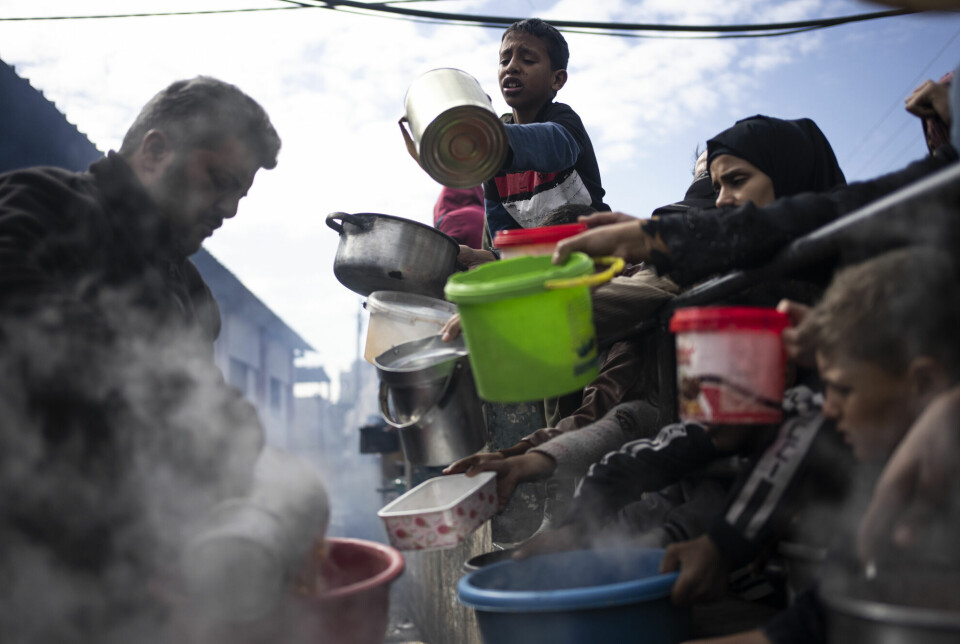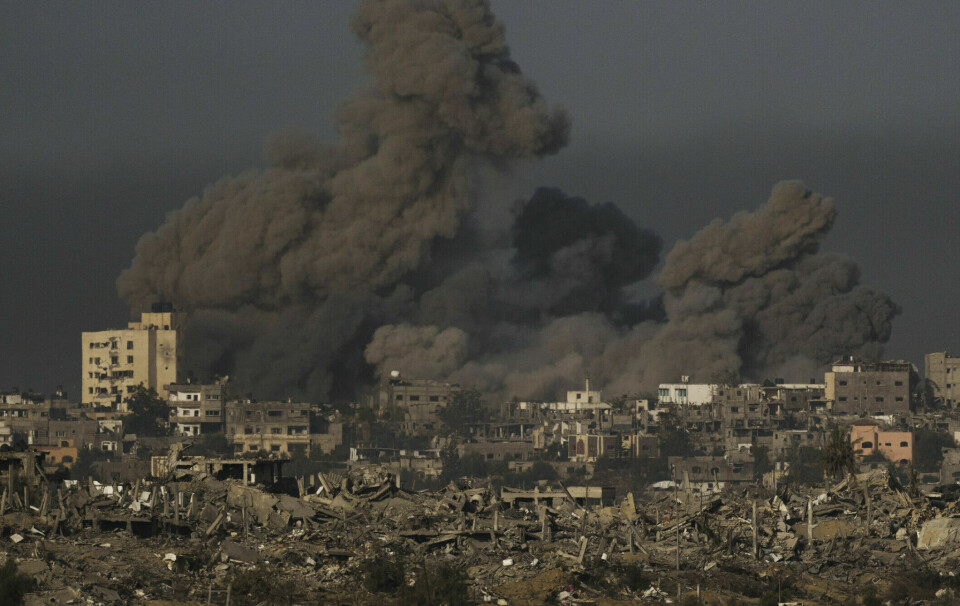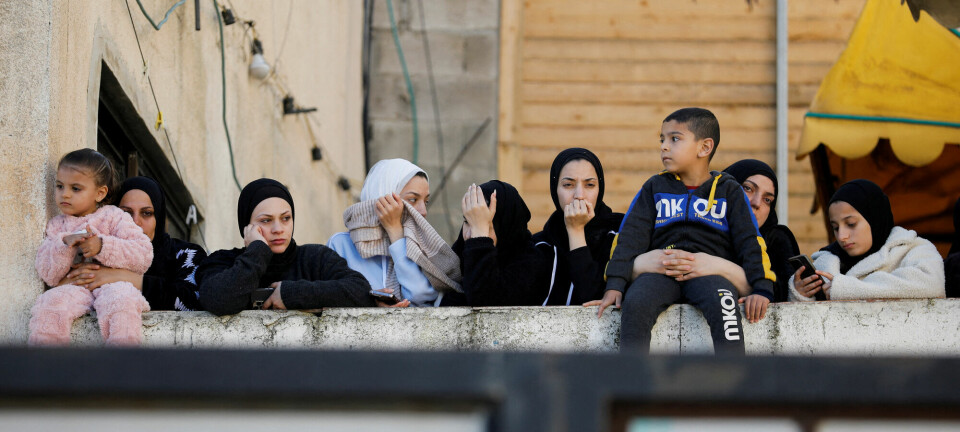
Why is it so difficult to determine whether Israel is committing genocide?
For someone to be convicted, genocide must be the only possible explanation for what they have done. How do they figure that out? And what about Hamas, can they be convicted of the same?
South Africa believes Israel is committing genocide against Palestinians in Gaza.
They have therefore filed a complaint against Israel at the court in The Hague, which is the UN's highest judicial body. For Israel to be convicted, the court must know what the intention behind the actions has been.
But how can one really know what the intentions of the leaders of a state is? We don't exactly have access to what goes on inside the heads of Benjamin Netanyahu and the other decision-makers in Israel.
Then it is much easier to be convicted of war crimes.
“If you shoot a prisoner of war, you have committed a war crime. But genocide is more difficult because there must be an intention to completely or partially exterminate a people group,” researcher Gro Nystuen recently said at a seminar organised by the University of Oslo.
Only then can it be defined as genocide.
Most viewed
Nystuen is a lawyer and researcher in international law, with a main focus on human rights. She is now working as the assistant director at NIM, the Norwegian National Human Rights Institution.
Must assess evidence
The big question, then, is whether Israel's actions in Gaza are aimed at exterminating the Palestinian population or if it is a war against Hamas.
South Africa believes they have gathered enough evidence for the intention to commit genocide.
They refer, among other things, to statements from Israeli politicians, military, the president, and the prime minister.
In the court document, it is stated that Israel Katz, Israel's foreign minister, has said: ‘All the civilian population in Gaza is ordered to leave immediately. We will win. They will not receive a drop of water or a single battery until they leave the world.’
Defense Minister Yoav Gallant has said that Israel is fighting against ‘human animals’.
Read the entire court document from South Africa here.
Whether this and the other evidence is enough to convict Israel, no one knows.
“I agree that this is not obvious,” Nystuen said at the seminar. “But it’s clear that such statements are indicative of genocide.”
To be able to prove that the intention is genocide, the court must look at such statements and connect them to what Israel actually does in Gaza.
Not just genocide
Incitement to genocide is in itself an international crime.
Thus, it is not limited to the act of genocide itself. Individuals can be held accountable for encouraging or participating in genocide. Failing to prevent genocide is also a crime. All this is included in the Genocide Convention.
After the genocide in Rwanda, for example, a radio host was convicted of genocide due to incitements he made during a broadcast.
“You don't have to have blood on your hands to be convicted of genocide,” Nystuen says.
Following Yugoslav wars in the 1990s, several were convicted of genocide, but most were convicted of war crimes and crimes against humanity. The state of Serbia itself was convicted of genocide – for failing to prevent it.
Genocide develops over time
But then there is this issue of proving intention among those accused of genocide. Is it really possible?
“There’s a misconception that genocide always starts with someone having a clear and stated plan to exterminate a people. History shows that an intent to commit genocide often develops dynamically as the conflict escalates,” says researcher Ellen Emilie Stensrud at the Norwegian Center for Holocaust and Minority Studies.
She also participated in the seminar at the University of Oslo.
When we are aware of the risk factors, i.e., what characterises the situations that lead towards genocide, we can try to prevent it from happening, Stensrud believes.
“In all severe conflicts resulting in numerous civilian casualties, examining the risk factors for genocide is crucial,” she said at the seminar.
Stensrud says that the intention of genocide was clear beforehand when ISIS abducted and killed thousands of Yazidis in Iraq in 2014. The UN has later described this as genocide.
“ISIS said outright that you either convert or you will be killed. So in that case, it was quite clear,” said Stensrud.
Displacement and access to emergency aid
In the context of Israel and Gaza, experts on genocide have specifically pointed to the displacement of the Palestinian population, Stensrud tells sciencenorway.no.
“It seems like a forced displacement of a population without any clear plan for their return. Genocide often starts with the idea of removing a group of people from an area,” she says.
Forced displacement is thus one of the risk factors.
Another is the humanitarian situation with the risk of famine. This is also pointed out by the court when it states that Israel must allow more emergency aid to enter.
“There’s a high risk that a very large number of people could die because the humanitarian situation is so catastrophic. So, that’s a risk factor,” says Stensrud, who has previously conducted research on genocide.

Israel is experiencing a serious threat
The perception of being subjected to an existential threat is also a factor, according to Stensrud.
“Hamas has stated that they intend to repeat the attacks they carried out on October 7th. This can give Israel the feeling that they are facing a serious threat and therefore might go to great lengths. Netanyahu's rhetoric also suggests that anything less than a total victory is unacceptable. Such rhetoric is risky and creates the impression that they must eradicate Hamas, almost at any cost,” the researcher says.
“Most people think of genocide as the absolute worst crime. And it’s important to say that most genocides are committed by actors who believe they are doing it to protect themselves from a threat. The threat can either be entirely imagined or arise from a real conflict,” she says.
This explains why those who commit genocide believe they are compelled to do so, according to Stensrud.
During the Holocaust, the Nazis harboured a conspiratorial belief that Jews posed a threat.
“It was completely detached from reality. But there can also be more real conflicts, such as in Rwanda. There, the genocide grew out of a civil war,” says Stensrud.
She clarifies that genocide is not necessarily happening right now.
“However, the fact that the conflict is so clearly perceived as existential by many in Israel, as a result of the brutal Hamas attack, increases the risk of violations of international law in the conflict. Whether in the form of war crimes or acts of genocide,” she says.
Can Hamas be convicted of genocide?
Some of the families of the Israeli victims of the Hamas attack have joined together in a demand that the International Criminal Court (ICC) investigate Hamas for genocide.
“Will Hamas be convicted of genocide?”
“I believe, in principle, that Hamas could be convicted of genocide. But it must be proven that they intend to exterminate all or parts of the Israeli population,” Gro Nystuen tells sciencenorway.no.
Regardless, the number of deaths does not determine whether an act qualifies as genocide.
“Whether such intent in the attacks on October 7th can be substantiated, I do not know,” she says.
Investigating Hamas for crimes against humanity
“Many believe that the actions of Hamas could constitute a crime against humanity due to the systematic nature of the attacks on the civilian population” Ellen Stensrud says.
She believes that the ICC is likely to investigate the Hamas attacks as war crimes, and possibly also as crimes against humanity.
———
Translated by Alette Bjordal Gjellesvik
Read the Norwegian version of this article on forskning.no







































